Filter by
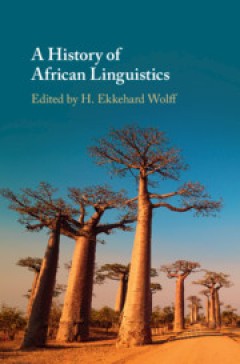
A History of African Linguistics
Bringing together a team of leading scholars, this volume forms the first global history of African linguistics as an autonomous academic discipline, covering Africa, America, Asia, Australia, and Europe. Defining African linguistics, the volume describes its emergence from a 'colonial science' at the turn of the twentieth century in Europe, where it was first established mainly in academic ins…
- Edition
- -
- ISBN/ISSN
- 9781108283977
- Collation
- -
- Series Title
- -
- Call Number
- -
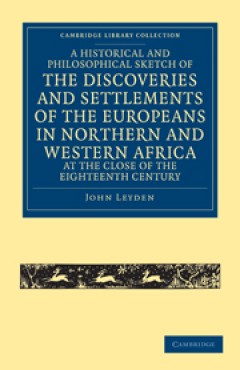
A Historical and Philosophical Sketch of the Discoveries and Settlements of t…
lthough he had never set foot in Africa, Scottish poet and linguist John Leyden (1775–1811) decided to publish in 1799 this compilation on 'discoveries and settlements' there, drawing from the published works of explorers. His aim was 'to exhibit the progress of discoveries at this period in North and West Africa', giving descriptions of places such as Guinea, the Gold Coast, and Sierra Leone…
- Edition
- -
- ISBN/ISSN
- 9781139058759
- Collation
- -
- Series Title
- Cambridge Library Collection - African Studies
- Call Number
- -
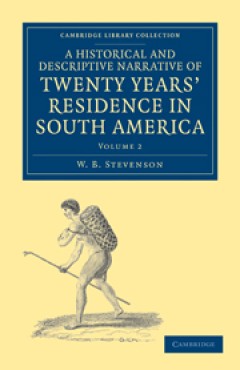
A Historical and Descriptive Narrative of Twenty Years' Residence in South Am…
In 1804 when W. B. Stevenson (fl. 1803–25) arrived on the small island of Mocha, just off the coast of South America, he stepped onto a continent on the brink of mass revolution. Over the next twenty years, he had an extraordinary range of experiences: as a traveller, a Spanish government official, a prisoner, and as secretary to an ex-Royal Navy admiral turned revolutionary. In this three-vo…
- Edition
- -
- ISBN/ISSN
- 9781139060592
- Collation
- -
- Series Title
- Cambridge Library Collection - Latin American Studies
- Call Number
- -

Broadcast 41 Women and the Anti-Communist Blacklist
Seeking a solution, pioneering women not only imagined, made and wore radical new forms of cycle wear, they also patented their inventive designs. The most remarkable of these were convertible costumes that enabled wearers to secretly switch ordinary clothing into cycle wear.
- Edition
- -
- ISBN/ISSN
- 9781912685424
- Collation
- -
- Series Title
- -
- Call Number
- -
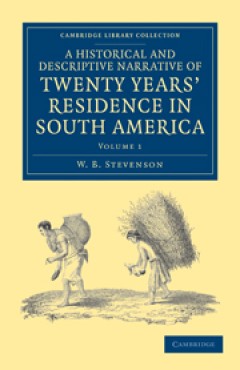
A Historical and Descriptive Narrative of Twenty Years' Residence in South Am…
In 1804 when W. B. Stevenson (fl. 1803–25) arrived on the small island of Mocha, just off the coast of South America, he stepped onto a continent on the brink of mass revolution. Over the next twenty years, he had an extraordinary range of experiences: as a traveller, a Spanish government official, a prisoner, and as secretary to an ex-Royal Navy admiral turned revolutionary. In this three-vo…
- Edition
- -
- ISBN/ISSN
- 9781139060585
- Collation
- -
- Series Title
- -
- Call Number
- -
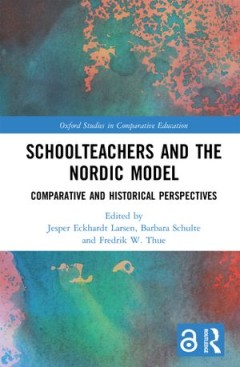
Schoolteachers and the Nordic Model : Comparative and Historical Perspectives
Schoolteachers and the Nordic Model examines the cultural distinctiveness of the Nordic teaching profession and teacher training compared to examples from Europe and North America.The book explores the concept of these ‘teacher cultures’ as various dimensions of professional identities, recruitment patterns, teachers’ social status, values and knowledge. It considers how Nordic teachers´…
- Edition
- -
- ISBN/ISSN
- 9781000521252
- Collation
- 260 halaman
- Series Title
- -
- Call Number
- 370 SCH
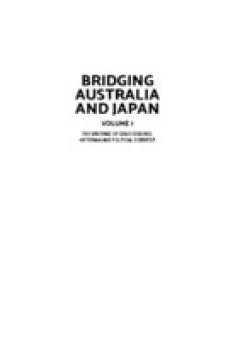
Bridging Australia and Japan: Volume 1. The writings of David Sissons, histor…
This book represents volume one of the writings of David Sissons, who for most of his career pioneered research on the history of relations between Australia and Japan. Much of what he wrote remained unpublished at the time of his death in 2006, and so the editors have included a selection of his hitherto unpublished work along with some of his published writings. Breaking Japanese Diplomatic C…
- Edition
- -
- ISBN/ISSN
- 9781760460860
- Collation
- -
- Series Title
- -
- Call Number
- -
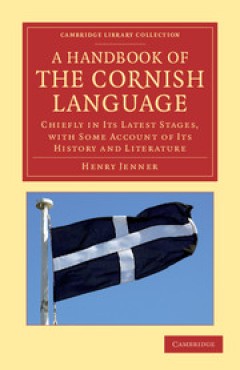
A Handbook of the Cornish Language Chiefly in its Latest Stages, with Some A…
'Why should Cornishmen learn Cornish?' asked Henry Jenner (1848–1934) in the preface to this 1904 publication, dating from the beginnings of the Cornish revival. Jenner admits that 'the reason ... is sentimental and not in the least practical'. Born in Cornwall, but raised in south-east England, Jenner worked at the British Museum from 1870 to 1909 and was elected a fellow of the Society of A…
- Edition
- -
- ISBN/ISSN
- 9781139207119
- Collation
- -
- Series Title
- Cambridge Library Collection - Linguistics
- Call Number
- -

Arming the Confederacy: How Virginia’s Minerals Forged the Rebel War Machine
This is a fresh look at the American Civil War from the standpoint of the natural resources necessary to keep the armies in the field. This story of the links between minerals, topography, and the war in western Virginia now comes to light in a way that enhances our understanding of America’s greatest trial. Five mineral products – niter, lead, salt, iron, and coal – were absolutely essen…
- Edition
- Ed. 1
- ISBN/ISSN
- 978-3-319-14508-2
- Collation
- XV, 206
- Series Title
- -
- Call Number
- 549 WHI a

A Grammar of the Mahratta Language To Which Are Added Dialogues on Familiar …
Marathi, an official language of Maharashtra and Goa, is among the twenty most widely spoken languages in the world. The southernmost Indo-Aryan language, it is also spoken in Gujarat, Madhya Pradesh, Karnataka, and Daman and Diu, and is believed to be over 1,300 years old, with its origins in Sanskrit. First published in 1805, this grammar of Marathi (then known as Mahratta) was compiled by th…
- Edition
- -
- ISBN/ISSN
- 9781139519847
- Collation
- -
- Series Title
- Cambridge Library Collection - Perspectives from the Royal Asiatic Society
- Call Number
- -
 Computer Science, Information & General Works
Computer Science, Information & General Works  Philosophy & Psychology
Philosophy & Psychology  Religion
Religion  Social Sciences
Social Sciences  Language
Language  Pure Science
Pure Science  Applied Sciences
Applied Sciences  Art & Recreation
Art & Recreation  Literature
Literature  History & Geography
History & Geography